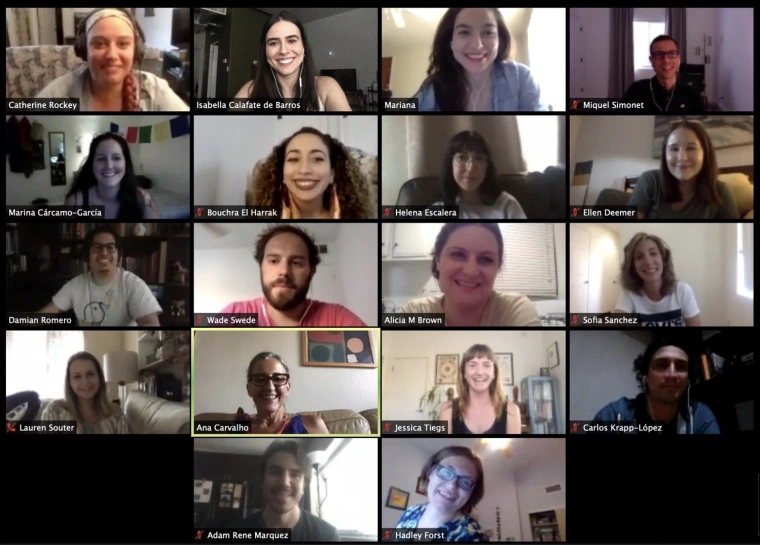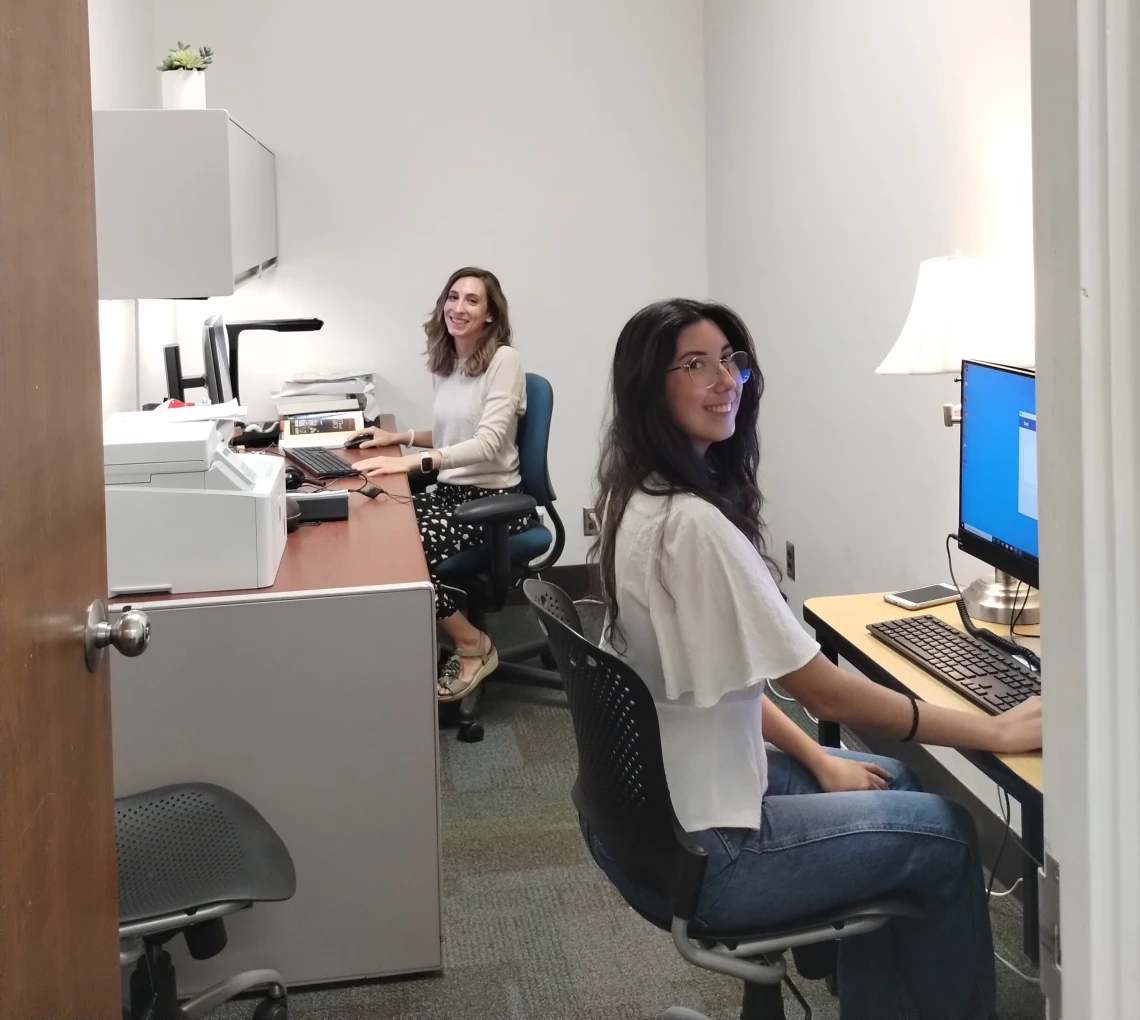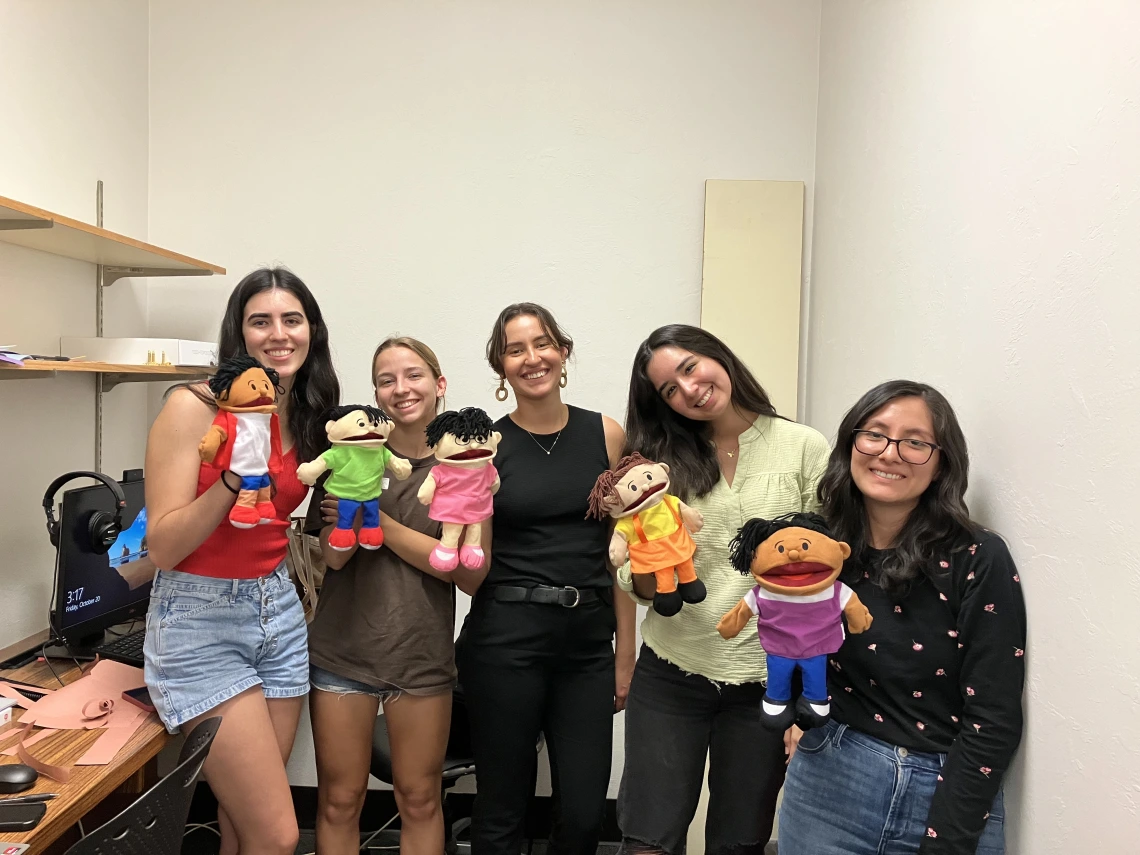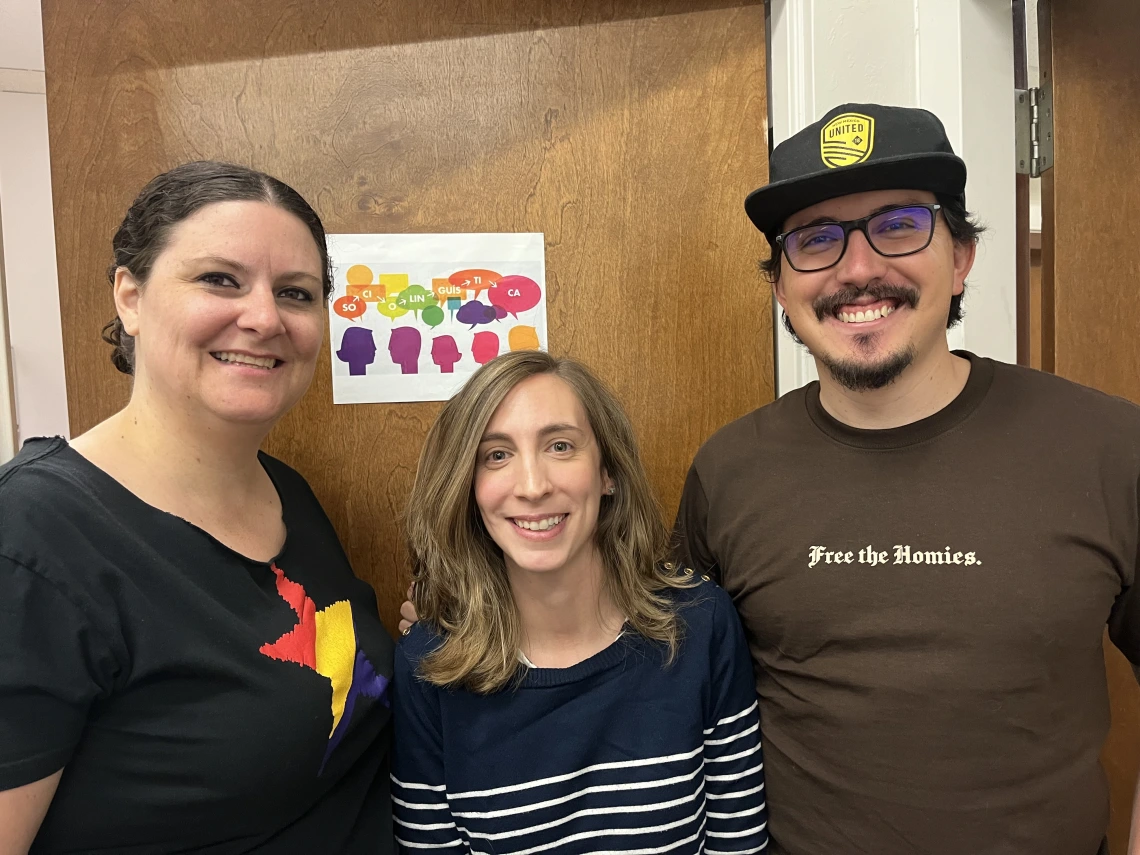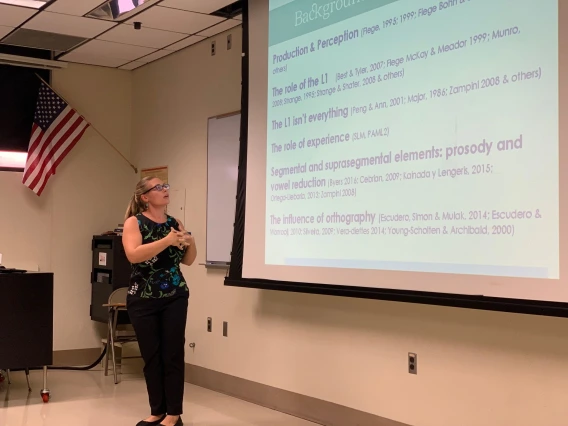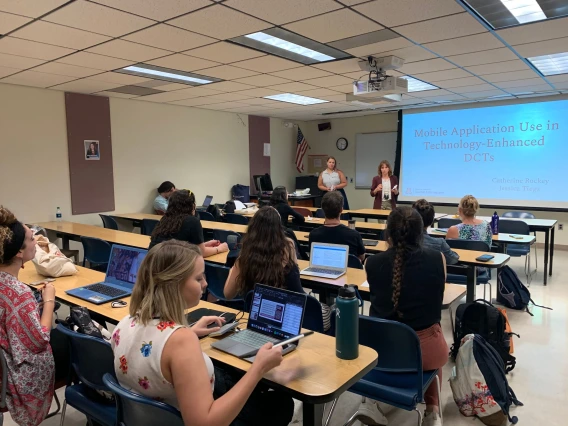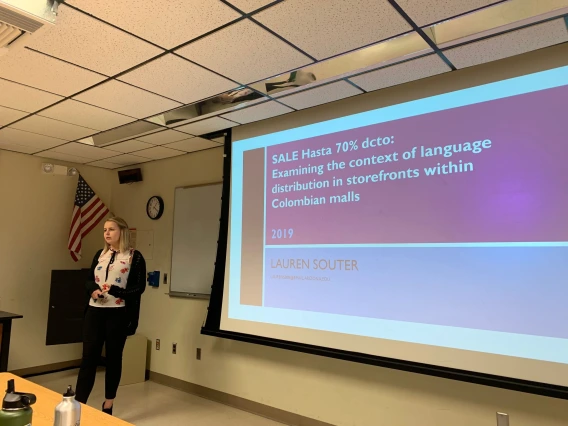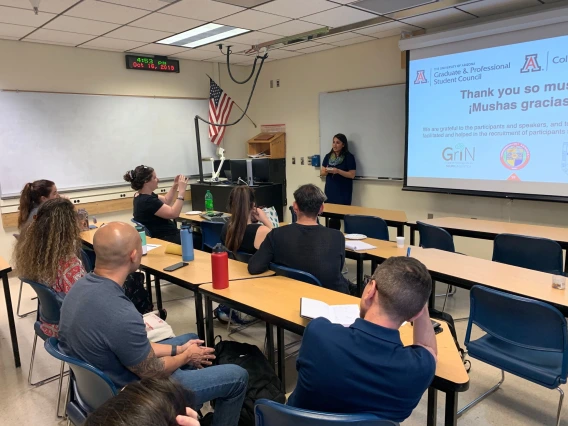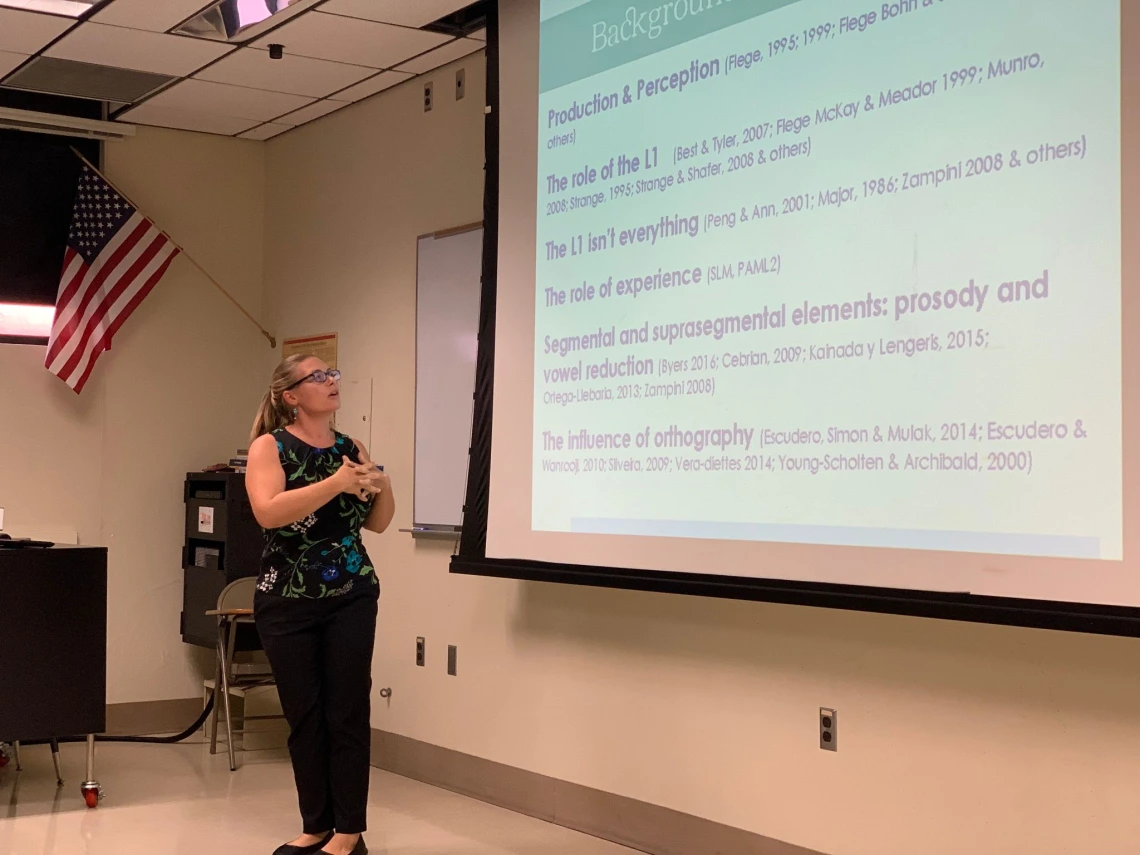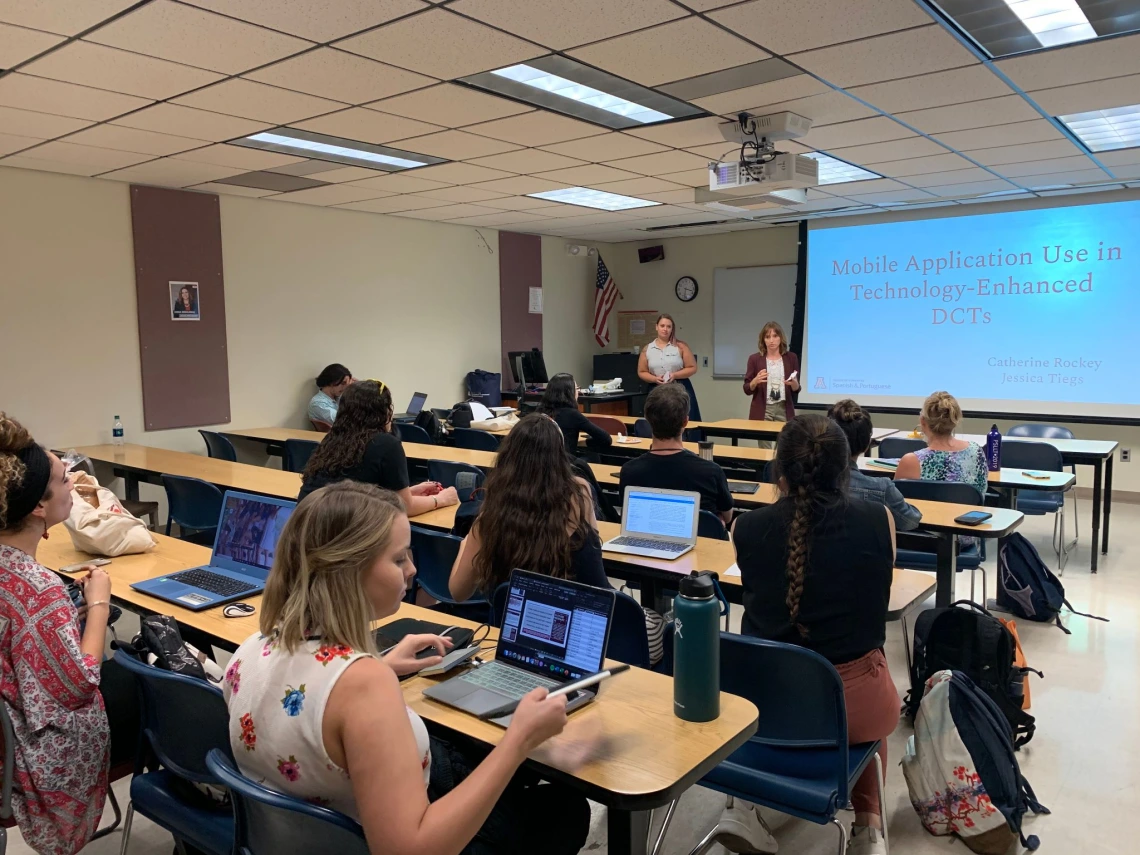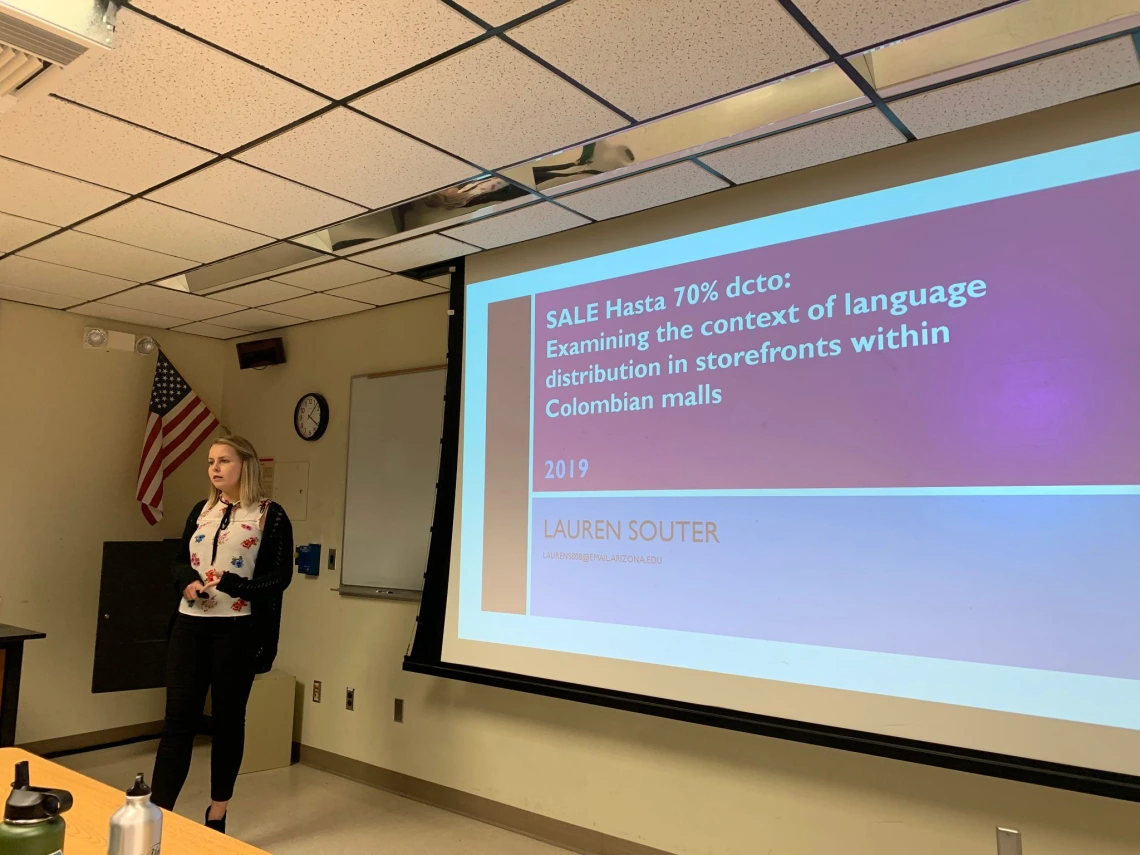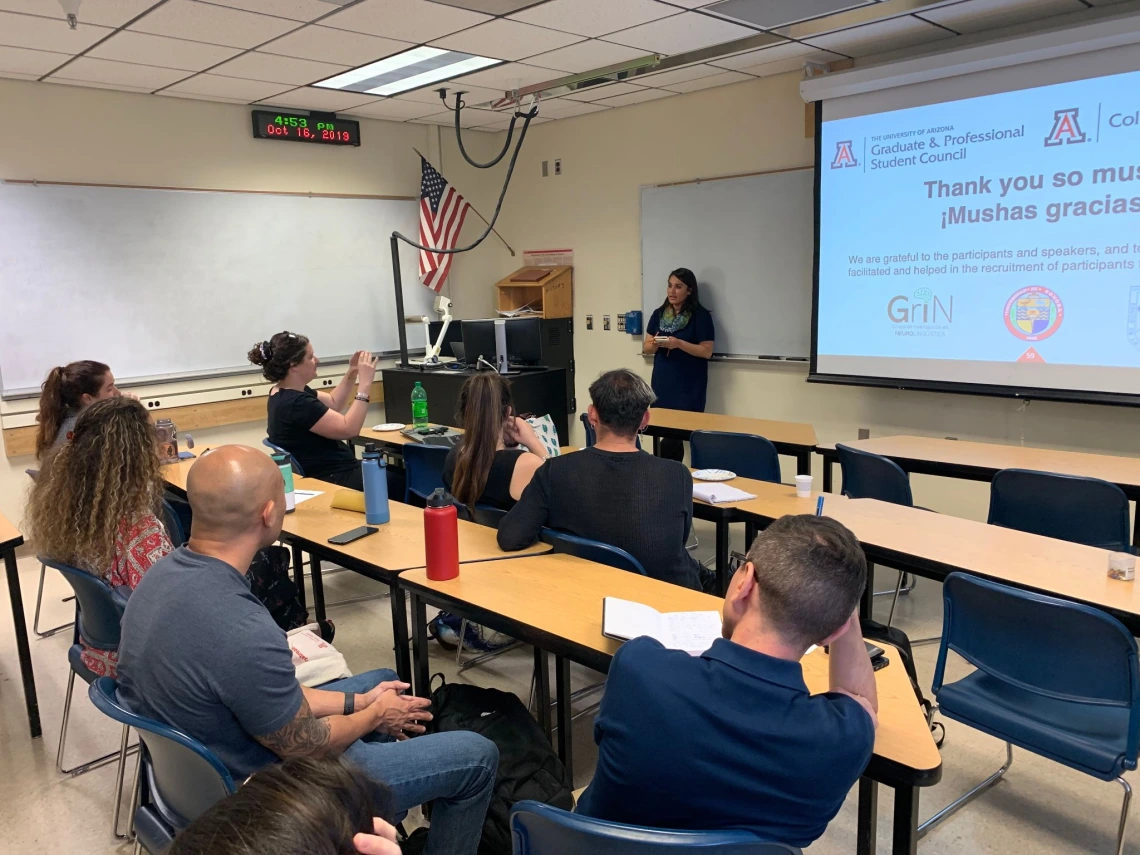Who We Are and What We Offer
The Department of Spanish and Portuguese offers a comprehensive graduate program in Hispanic Linguistics. Courses explore such topics as what Spanish language structures are possible and why; how sounds are learned, processed, produced, and perceived; and the use of language as social behavior, including speaker intention, the role of the interlocutor, and the impact of society on language. Coursework includes topics in Spanish bilingualism, heritage- and second-language acquisition and teaching, morphology, phonetics, phonology, pragmatics, sociolinguistics, syntax, and translation studies. Our faculty is committed to working closely with you to prepare you for careers in Spanish teaching and research, and beyond.
Linguistics in Tucson
The University of Arizona has the highest concentration of linguists per student of any Research-1 University in the United States. Linguists are part of an increasing number of Departments and Programs including Linguistics, Cognitive Science, Spanish and Portuguese, English, French and Italian, Second Language Acquisition and Teaching (SLAT), Anthropology, to name a few-- and they form a tightly related resource for theoretical, applied and multidisciplinary studies. The University of Arizona is situated in the midst of Native American Territory and very close to the border with Mexico. Tucson hosts an extensive community of native speakers of Spanish making it a vibrant and endless source of linguistic reflection and research.
The Department of Spanish and Portuguese offers the Ph.D. with a major in Spanish - Hispanic Linguistics.
The applicant must hold, or anticipate completing by the time of admission, an M.A. degree from an accredited U.S. college or university or the equivalent degree from a university outside the U.S., have a minimum grade point average of 3.4 on a 4-point scale in the M.A. in Spanish, and meet the general requirements of the Graduate College.
Procedure for consideration
External M.A. candidates
See Application Checklist
Internal M.A. candidates
For admission to the Ph.D. program all internal M.A. candidates who wish to continue for the Ph.D. at the University of Arizona will be considered by the Graduate Studies Committee to ensure equitable treatment for all students. In their deliberations, the Graduate Studies Committee will give strong consideration to the report of the student's M.A examination committee, which specifically addresses the student's potential as a Ph.D. candidate. The Graduate Studies Committee will also consider the student's academic record (GPA, course work) and any pertinent information from the student's file. The student must also provide the following:
- Three letters of reference, at least one of which must be from a professor who did not serve on the student's M.A. examination committee
- Curriculum Vitae
- Statement of purpose written in Spanish by the student
- A writing sample in Spanish
- Graduate College Online Admission Application
This procedure will ensure that each student will be considered fully and fairly. Admittance into the program will not be solely dependent upon performance on an isolated examination. In addition, this process closely parallels that followed by all other incoming Ph.D. candidates. (approved by unanimous vote of the faculty on 5/4/95)
Upon entering the Ph.D. program, the student establishes their degree study program in consultation with the Director of Graduate Studies. The student must complete the following:
- A diagnostic qualifying oral interview during the first semester of study.
- 51 graduate units of course work (up to 15 units of course work may be transferred from the M.A.). A minimum of six units must be 600-level seminars.
- Present reading knowledge of one foreign language, other than English or Spanish, appropriate to the field of specialization (see page 13 for detailed information regarding the foreign language requirement).
- Pass a comprehensive examination, partly written and partly oral, which will include primary and secondary areas within the declared major field of study.
- Complete 18 doctoral dissertation units, write and defend a dissertation.
In addition, all Graduate Associate Appointments (GAs) in Spanish and Portuguese are required to complete a language teaching methodology course (SPAN-581A) before or during their first semester of classroom teaching. This course counts as one of the student’s electives for the Ph.D.
Qualifying Oral Interview
During the first semester of studies at the University of Arizona, all incoming Ph.D. students participate in the diagnostic oral qualifying interview. Each student, working in collaboration with the Director of Graduate Studies, proposes two topics that represent knowledge in the relevant major and that reflect the student's academic preperation from the M.A. In addition, the student will submit a writing sample (that is, a Masters-level term paper written in Spanish) to the Director of Graduate Studies no later than three weeks prior to the date of the Qualifying Oral Interview. The writing sample will be read by the members of the Qualifying Oral Interview and will be discussed with the student during the interview. The interview lasts a minimum of one hour and a maximum of two hours. The interview starts with a brief fifteen-minute presentation by the student on the two chosen topics. During the interview, the committee, established by the Graduate Studies Committee, will question the student on these topics. The purpose of this interview is to assess a student’s strengths and weaknesses so that s/he can be effectively mentored.
Foreign Language Requirement
In addition to the above requirements, all students entering the Ph.D. in Spanish program are required to pass a proficiency exam in a language other than English or Spanish prior to taking their comprehensive exams.
(Approved: April 5, 2002)
It is a necessary academic requirement that all Ph.D. candidates in Spanish demonstrate "reading knowledge" of a natural language other than Spanish and English, preferably a Romance language (otherwise, a language that has a direct bearing on the candidate's research and/or studies). The level of proficiency expected is that of passing an advanced 300-level grammar and writing course with a grade of B or higher.
The candidate must meet this language requirement BEFORE--and as a condition towards--taking the written Comprehensive Exams.
The foreign language requirement may be met in one of the following ways:
- For students who complete the requirement at the University of Arizona: Successful completion of course work to the advanced level in a language other than English or Spanish, with an average grade of B or higher. The course work must include a 300-level intermediate/advanced grammar course taught and examined in the target language (typically xxxx-325 or 305, depending on the department).*
- For students with course work in a language other than English or Spanish from an accredited institution: The student will meet with the Graduate Advisor to determine whether or not the course work satisfies the foreign language requirement. The Graduate Advisor may require, at his/her discretion, that the student take additional course work and/or pass a proficiency exam in the language of choice. The format and content of the exam will be determined in conjunction with the Graduate Advisor and a qualified instructor of the chosen language.
- Students who are native speakers of a language other than English and Spanish may have this requirement waived with the approval of the Graduate Advisor.
*Note: Students that enter the Ph.D. program in Hispanic Literature without any formal instruction in a language other than English or Spanish may complete the foreign language requirement in two semesters if they choose to study Portuguese. In this case, the student must complete the following courses with an average grade of B or higher:
- PORT-305: Portuguese for Spanish Speakers
- PORT-325: Intermediate Grammar and Conversation
- PORT-305 and PORT-325 reflect the minimum course work required to complete the foreign language requirement. An exam or term paper may NOT be used in lieu of one of these courses. However, the student may substitute a 400- or 500-level Portuguese course for PORT-325 with the permission of the Portuguese Advisor and the Graduate Advisor.
Our Graduate Courses
- SPAN 574 Language in the Mexican American Experience
- SPAN 574B Heritage Language Research
- SPAN 580A Spanish Phonology I
- SPAN 580B Spanish Phonology II
- SPAN 580C Spanish Phonology III
- SPAN 581A Foreign Language Teaching Theory and Methodology
- SPAN 581B Heritage Language Pedagogy
- SPAN 581C Online Course Design for Advanced Language Courses
- SPAN 582A Spanish Syntax I
- SPAN 582B Spanish Syntax II
- SPAN 582C Spanish Syntax III
- SPAN 583A Research Methods in Spanish Phonetics
- SPAN 584A Spanish Sociolinguistics I: Language Contact
- SPAN 584B Spanish Sociolinguistics II: Language Variation
- SPAN 584C Spanish Sociolinguistics III: Research Methods in Sociolinguistics
- SPAN 585 Introduction to Translation Studies
- SPAN 696D Hispanic Linguistics
Faculty and Student Collaborative Research
Our Labs
Our department created a lab space to foster collaboration among faculty and students. This space hosts 3 separate labs: the Tucson Applied LInguistics Lab (TALL), directed by Professor Julieta Fernández; SoReLa (Sociolinguistics Research Lab), directed by Professor Ana Carvalho, and the Arizona Applied Phonetics and Psycholinguistics Lab (AAPPL), which is co-directed by Professors Tania Leal and Miquel Simonet. The AAPPL is associated with a Vertically Integrated Project, which is open to taking on student researchers for course credit.
These labs provide a common space that is shared by faculty, students, and research assistants. Together, we gather for weekly meetings, discussions, data collection and analysis, and presentations.
Graduate Student Associations
Department of Spanish and Portuguese Linguistics Colloquium
Fall 2023
- October 6
- Discourse/Pragmatic Variation in the Pragmatic System of Southern Arizona Spanish (Brandon J. C. Martínez - University of Arizona)
- Spanish grammatical gender assignment of Basque nouns (Alicia Brown - University of Arizona)
- November 3
- From 'Cuck' to 'Prostitute': Crosslinguistic Variation of Dekasegi in Brazilian Portuguese and Japanese Online Discourse (Miguel Germán Román - Indiana University, Bloomington)
- Identity as a sociolinguistic factor in minorized contexts (Eukene Franco-Landa - University of Miami)
- December 1
- Processing accented speech in the L1: Does L2-accented phonetic detail impede lexical access? (Hadley Forst - University of Arizona)
- Reduplicación total de constituyentes en la gramática del español (Alma González Camacho - Universidad Nacional Autónoma de México)
- For more information: https://spanish.arizona.edu/graduate/resources/dsp-linguistics-colloquium
Corpus of Spanish in Southern Arizona (CESA)
CESA is a corpus of sociolinguistic interviews carried out by our undergraduate and graduate students in Hispanic Linguistics. Currently, a NEH grant, titled “Bilingual Voices in the U.S.-Mexico Borderlands: Preserving, Expanding & Elaborating Sociolinguistic Collections”, funds graduate research assistants who, under the supervision of Ana Carvalho, work on multiple activities involving sociolinguistic data management. This project offers valuable hands-on research experiences that allow students to participate in the deeply meaningful practice of documenting, analyzing, and preserving sociolinguistic corpora.
Bilingual Voices Provide Insight into Community Languages | Spanish & Portuguese (arizona.edu)
2020 Hispanic Linguistics Welcome Happy Hour
